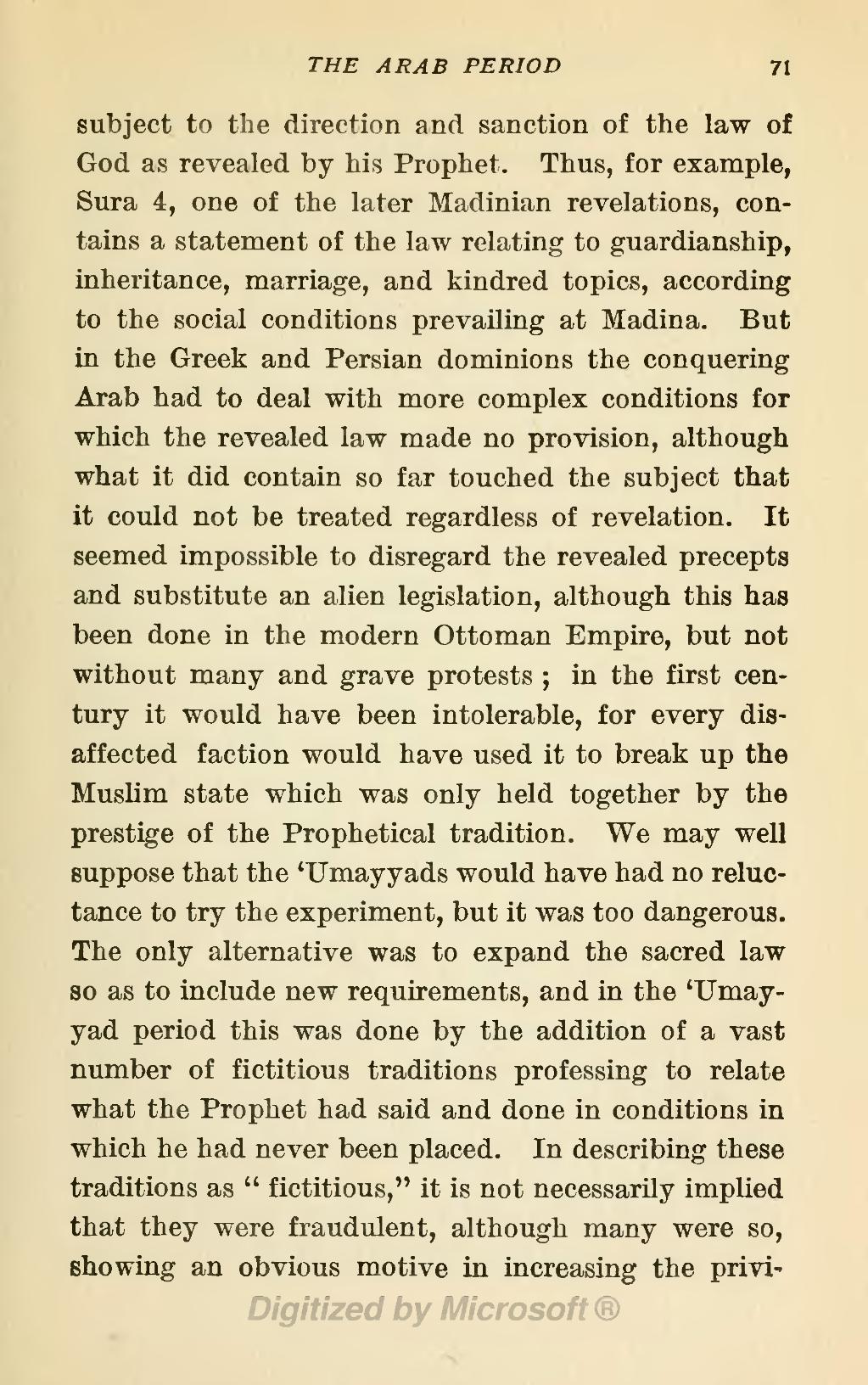subject to the direction and sanction of the law of God as revealed by his Prophet. Thus, for example, Sura 4, one of the later Madinian revelations, contains a statement of the law relating to guardianship, inheritance, marriage, and kindred topics, according to the social conditions prevailing at Madina. But in the Greek and Persian dominions the conquering Arab had to deal with more complex conditions for which the revealed law made no provision, although what it did contain so far touched the subject that it could not be treated regardless of revelation. It seemed impossible to disregard the revealed precepts and substitute an alien legislation, although this has been done in the modern Ottoman Empire, but not without many and grave protests; in the first century it would have been intolerable, for every disaffected faction would have used it to break up the Muslim state which was only held together by the prestige of the Prophetical tradition. We may well suppose that the 'Umayyads would have had no reluctance to try the experiment, but it was too dangerous. The only alternative was to expand the sacred law so as to include new requirements, and in the 'Umayyad period this was done by the addition of a vast number of fictitious traditions professing to relate what the Prophet had said and done in conditions in which he had never been placed. In describing these traditions as "fictitious," it is not necessarily implied that they were fraudulent, although many were so, showing an obvious motive in increasing the privi-
